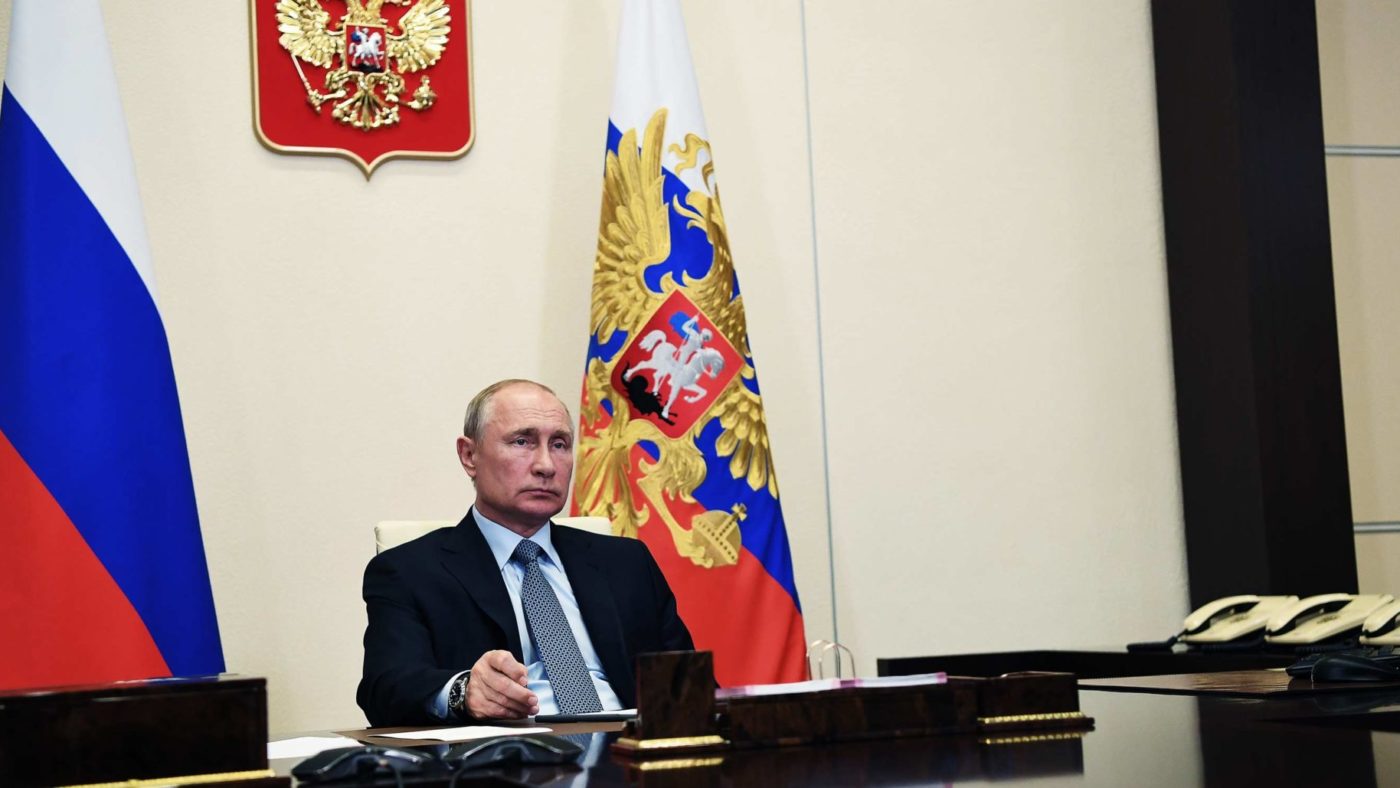After a lengthy Covid-induced delay, Vladimir Putin’s ‘nationwide vote’ on a package of amendments to the Russian constitution will finally take place later this week.
From June 25 to July 1 Russian voters will be able to say Yes or No to a series of changes affecting areas such as religion, patriotism, marriage, education and society. But the only really important point is the proposal to ‘zero out’ Putin’s previous presidential terms, allowing him to be a candidate in the next presidential election and potentially stay in power for another two terms. In other words, the question facing the Russian electorate is: do you want Putin in charge until 2036?
It’s a strange sort of a vote: neither an election, nor a referendum, and regulated by its own special law. Technically, Putin does not even need public approval to change the constitution. Given the pandemic, holding such a vote now seems doubly unnecessary.
While infection numbers in Moscow have been decreasing, in other Russian regions the situation has been getting worse. Many cities have had to cancel their military parades commemorating the 75th anniversary of the end of World War II (also delayed from the original date on May 9) to avoid spreading the virus.
Moscow’s Victory Day parade is very much on, however. It’s supposed to be a symbolic event for Putin, representing not only the Soviet triumph over the Nazis, but his personal victory over the virus. Not that he seems to believe that the crisis is over, judging by the fact that WWII veterans due to attend the parade have been placed in isolation for two weeks prior to the event. Nonetheless, holding the parade is intended make people believe that Russia has come thruogh the pandemic and can now turn its attention to other matters, such as constitutional reform.
Both chambers of the Russian Federal Assembly have already approved the reform. New copies of the constitution are already on sale in Moscow’s bookstores. So why hold the vote anyway?
Much like the Victory Day parade, the plebiscite carries symbolic importance as a way for voters to show their approval of Putin’s presidency, cementing a certain social contract between him and the Russian people. Just like in democratic regimes where politicians use referenda to justify policies with public support, Putin can use this victory to send a message to the elite that his power is rooted in the will of the people.
It is also clear that for Putin, the sooner this vote is held, the better. This is why the self-isolation regime in Moscow has been terminated suddenly, as if the virus had been eliminated overnight. The president’s approval rating had been falling even before the pandemic, due to his overall lack of vision for the country after the 2018 presidential election and his support for a controversial pension reform. That trend was accelerated by a stagnating economy, the fall in oil prices, and then the pandemic itself. The OECD has forecast Russia’s GDP to fall by 8% (in their ‘single-hit’ scenario) or 10% (double-hit scenario) this year.
All of which means delaying the vote any further risks an even angrier electorate, which has been forced into self-isolation with minimal or non-existent financial support from the state, uniting against the authorities and expressing its discontent.
Meanwhile, the opposition is having a hard time deciding on whether to vote against the reform or simply ignore and/or boycott the whole process. It is also not allowed to hold protests due to the pandemic restrictions.
The Kremlin has now fully mobilised to agitate for people to vote, with flyers, billboards, paying celebrities to publicly voice their support, and offering prizes for those who participate. The messaging plays up unifying values such as patriotism and family, and avoids explaining or even mentioning the bit about Putin staying in power. Putin himself is conspicuous by his absence from the campaign, though he has said he’s sure that an “absolute majority” of Russians supports the values represented by the reform.
The Kremlin’s full-throated efforts make clear how much Putin wants this vote to convince Russia’s elites, its people and maybe even himself of his enduring legitimacy. But with the regime’s already falling approval ratings exacerbated by the pandemic, winning this ‘nationwide vote’ may not be the guarantor of political stability that Putin is hoping for.
Click here to subscribe to our daily briefing – the best pieces from CapX and across the web.
CapX depends on the generosity of its readers. If you value what we do, please consider making a donation.


